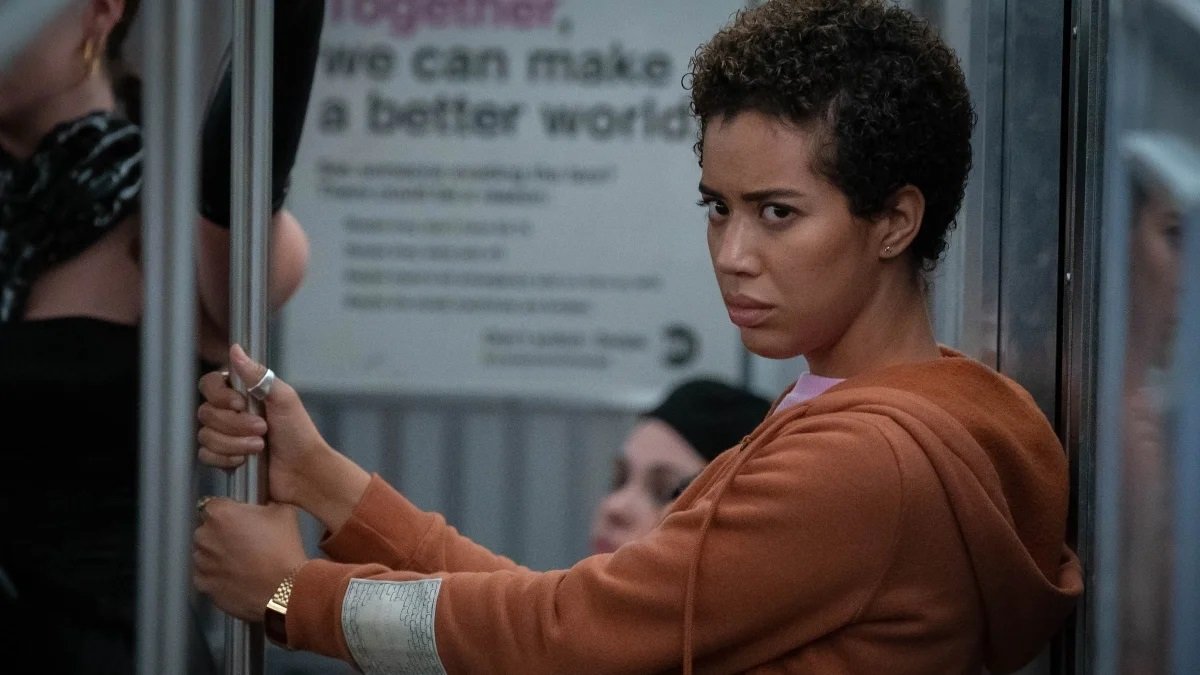[Pride 2023] Scream isn’t Queer Enough
Please consider donating to
the Transgender Law Center here
The Scream franchise is my favorite. Sure, I’ve been raked over the coals online dozens of times, most notably for suggesting Scream VI didn’t need Sidney Prescott and, most recently, for wishing the revived entries had been scarier, but I’ve always believed that the duty of fan and critic are inextricable. You can’t love something if you can’t hope for it to be better, more than what it currently is. That is, after all, the thrust of the Scream franchise itself.
Scream loves scary movies—it almost even called itself “Scary Movie.” It pokes fun because it wants these movies to be better. And it’s worked, mostly. Sure, the self-aware meta trend has grown somewhat exhausting—though most often, contemporary meta horror often misses the edification of meta-commentary, it’s there to educate and inspire, not simply be cruel—but writ large, there’s a direct link between Scream and several of the genre’s hardest hitters. You’re Next, Ready or Not, and even nineties fare like Urban Legend (a masterpiece) are sterling creations molded in the shadow of Wes Craven and Kevin Williamson’s horror classic. The latest entries will no doubt prove just as influential, though they’re missing a key element of what, to me, made the original series so special.
New Scream simply isn’t queer enough.
Horror fans know that Scream scribe Kevin Williamson identifies as gay, and from an outsider perspective, that’s at least marginally obvious in his horror scripts. Cursed has a hunky gay Milo Ventimiglia. I Know What You Did Last Summer has Murder She Wrote jokes. Scream 2 has Portia de Rossi and Rebecca Gayheart discussing the merits of “harmonica style” oral sex. Gay, yes. But also gay in a “like, retweet” on Gay Twitter kind of way. It’s passingly amusing, and it’s distinct—there’s no supplement for Williamson’s dialogue, even his recently released Sick is a movie much smarter than it suggests. Yet, the innate queerness of the Scream franchise goes far beyond the dialogue and swagger of a queer scribe. There’s queer humanity in the franchise that neither new entry has come close to matching.
Wes Craven is arguably one of the greatest humanist filmmakers of all time, and in his collaborations with Kevin Williamson, that humanity is part and parcel of every project they’ve worked on. For as goofy as iis, there’s a tragic, gothic element to the plight of Judy Greer’s Joanie. In Scream, pathos reign supreme. There’s nothing funny about the backstory and murder of Sidney’s mother, Maureen Prescott. Notably, Scream 3 represents the biggest misstep in Maureen’s characterization, rendering her a perennial victim stripped of agency. It’s only in Scream 4, Williamson’s return to scripting duties, that Maureen is rendered human again. In a small, blink and you’ll miss it line, Mary McDonnell’s Kate Roberts grieves her sister, asking aloud why no one ever asks how she’s managing. It’s always about Sidney.
That’s not a knock against Sidney. Rather, rooted in the nature of queerness and found family, of the trauma that binds, the pain and violence innate in contemporary queer existence. It’s recognition of an entire community of survivors. Recognition of how violence ripples and spreads. It’s a fundamental respect for human beings, for the core trio of Sidney, Dewey, and Gale, and every other person they’ve ingratiated into their cohort.
Notably, the two new entries concede the humanity for hoary meta laughs. That the lone queer death in the new entries-- Devyn Nekoda as Anika—is treated as a gag is telling. No doubt Scream VI revitalized the “tarnished brand,” so to speak. It’s brutal, terrifying, and frequently laugh-out-loud funny in a way the franchise desperately needed to remain viscerally relevant almost thirty years after the first. Yet, like Scream the year before, the queer identity is sanded down to nothing. Other than Mindy Meeks-Martin (Jasmin Savoy Brown), queerness is incidental. It’s a gag, a checked box in the most perfunctory of ways. A queer character does not a queer film make. It’s deeper, more nebulous than mere representation, and both Scream and Scream VI have failed to cultivate the same queerness the three Craven and Williamson collaborations have.
Neither film is rendered less successful on account of that. Scream 2022 was my favorite horror movie of last year. This year, Scream VI will be up there. Yet, I’ve written extensively about my adoration for the Scream franchise, an adoration innately rooted in my own queerness. There’s no doubt that more than any other horror franchise (notwithstanding the legs M3gan and its forthcoming sequel have), Scream is a favorite among queer audiences. While Williamson remains an Executive Producer, his scripts—and Craven’s humanity—are missing behind-the-scenes. They remain whip-smart slasher films. They’re as broadly appealing as possible at the expense of a subtle identity that made them distinct. Scream proved it could be as funny and scary as possible after a decade away.
If only it could remain just as queer.


![[Pride 2023] Scream isn’t Queer Enough](https://images.squarespace-cdn.com/content/v1/5b39608d75f9eef54c62c3f0/1686227088525-FZQ2Q638KCOLF0FVO9VV/Jasmin-Savoy-Brown-Mindy-Meeks-Martin-Scream-VI.jpg)



![[Silo Review w/ Joe Lipsett] "The Flamekeepers" Brings New Revelations as the Tension Continues to Climb](https://images.squarespace-cdn.com/content/v1/5b39608d75f9eef54c62c3f0/1686244031856-JCPQPOEW164ZSAY0G4P1/Silo_Photo_010702.jpg)
![[Pride 2023] We Now Conclude Our Broadcast Day: Analog Horror As A Queer Space](https://images.squarespace-cdn.com/content/v1/5b39608d75f9eef54c62c3f0/1686107056883-Z6JHKHF283P1L5TGWN9V/Creature.jpg)
![[Pride 2019] Don Mancini's Queer Inclusion](https://images.squarespace-cdn.com/content/v1/5b39608d75f9eef54c62c3f0/1558992991942-1EFIALF6MR98YNGQJ61J/Glenorglenda-e1497479115890.jpg)
![[Pride 2020] A Tribute To Kevin Williamson](https://images.squarespace-cdn.com/content/v1/5b39608d75f9eef54c62c3f0/1592881451514-Y4OPAHSXUI63FH3T7TB2/lockwood_williamson2.jpg)
![[Pride 2022] Signed, Sealed Delivered: Asexuality and Horror](https://images.squarespace-cdn.com/content/v1/5b39608d75f9eef54c62c3f0/1654779766958-LYN6R0LUUBSNA2IL44EB/image.jpg)